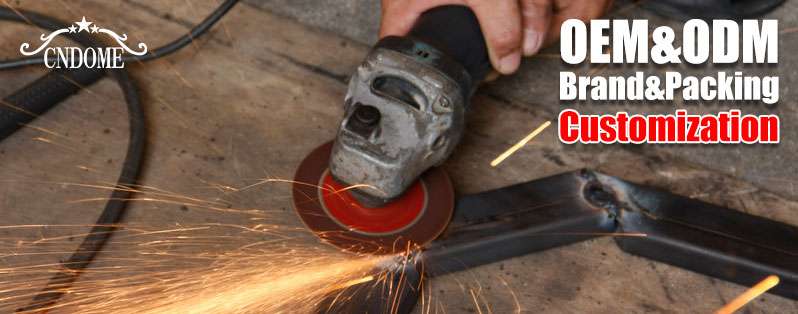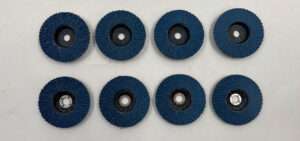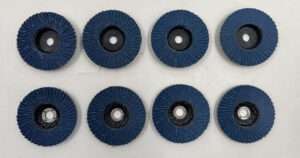In the world of abrasive tools, flap discs are versatile workhorses, renowned for their ability to grind, blend, and finish various materials with efficiency and precision. Among the myriad of choices within the flap disc realm, mesh numbers flap discs stand out as a unique and effective option. In this guide, we delve into the significance of mesh numbers, their impact on flap disc performance, and why they’re a valuable addition to any toolkit.
Understanding Mesh Numbers:
Mesh numbers, often encountered in the context of abrasives, refer to the size of the abrasive particles used in manufacturing. Essentially, the mesh number indicates the number of openings per linear inch in a sieve through which the particles of an abrasive material will pass. For instance, a higher mesh number signifies finer abrasive particles, while a lower number indicates coarser particles.
The Mesh Numbers Flap Disc Advantage:
Mesh numbers flap discs are distinguished by their utilization of abrasive grains that are carefully graded and distributed according to their mesh sizes. This precise grading ensures consistent and controlled material removal, as well as a superior surface finish. Unlike traditional flap discs, which may have a broader range of particle sizes, mesh numbers flap disks offer a more refined approach, ideal for applications that demand meticulous results.
Applications and Benefits:
- Finishing: Mesh numbers flap discs excel in providing a smooth and uniform finish on various surfaces, including metals, wood, and plastics. The finer abrasive particles effectively remove imperfections and refine surfaces to a high standard, making them indispensable for tasks such as weld blending and surface preparation.
- Reduced Heat Build-up: The controlled cutting action of mesh numbers flap diss minimizes heat generation during use, reducing the risk of heat-related damage to the workpiece. This feature is particularly advantageous when working on heat-sensitive materials or when striving to avoid discoloration or distortion.
- Enhanced Control: With their precise abrasive grading, mesh numbers flap discs offer users greater control over the material removal process. Whether tackling intricate contours or performing delicate finishing work, these discs provide a level of precision that promotes efficiency and accuracy.
- Extended Lifespan: The uniform distribution of abrasive grains in mesh numbers flap discs contributes to prolonged disc life. By minimizing premature wear and ensuring consistent performance throughout the disc’s lifespan, users can achieve more work output with fewer disc changes, resulting in cost savings and increased productivity.
Choosing the Right Mesh Number:
Selecting the appropriate mesh number for a specific application requires consideration of several factors, including the material being worked on, desired surface finish, and the level of material removal required. Generally, finer mesh numbers (higher grit) are suitable for finishing and polishing tasks, while coarser mesh numbers (lower grit) are more adept at aggressive material removal and blending.
Conclusion:
Mesh numbers flap discs represent a refined approach to abrasive tooling, offering precision, control, and superior surface finishing capabilities. Whether you’re a professional fabricator, welder, or DIY enthusiast, integrating mesh numbers flap disks into your arsenal can elevate the quality of your work and streamline your operations. By understanding the significance of mesh numbers and their impact on flap disc performance, you can unlock new levels of efficiency and craftsmanship in your projects.



